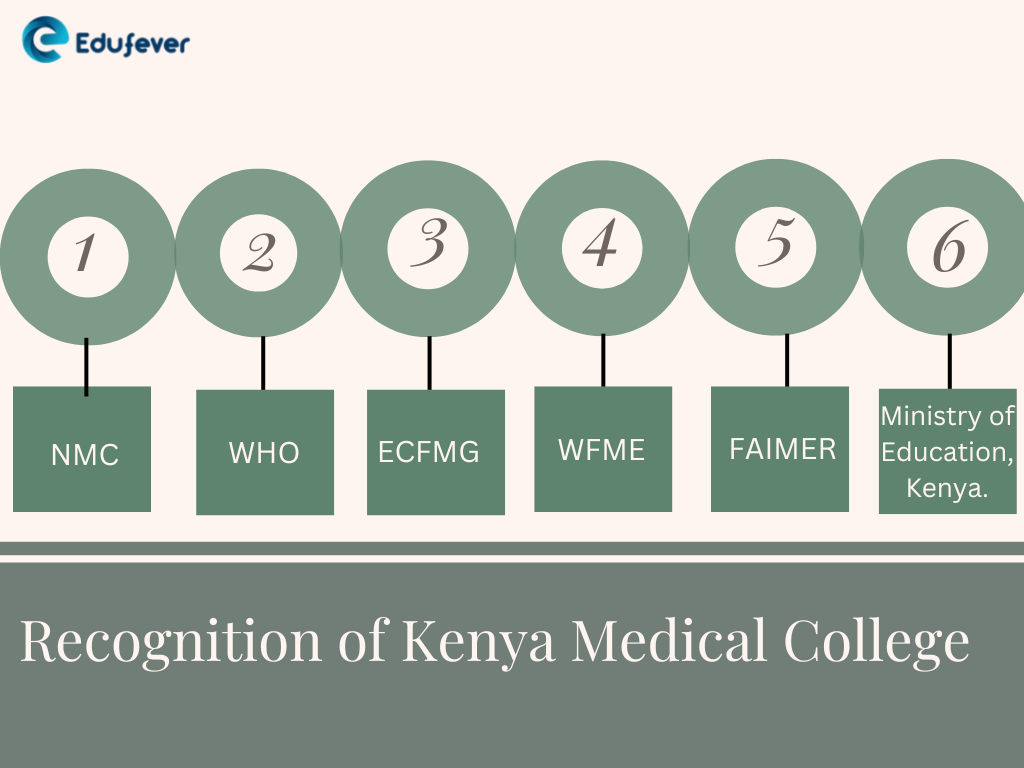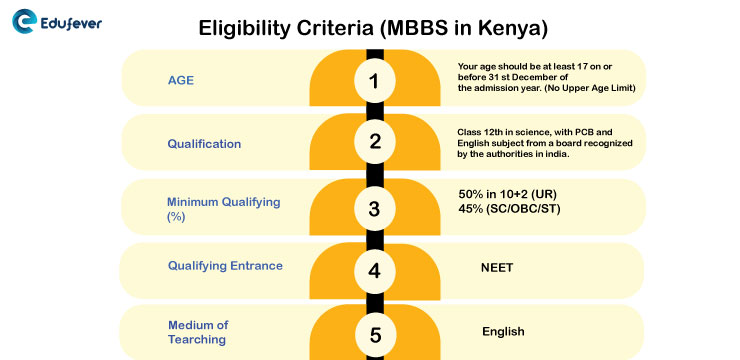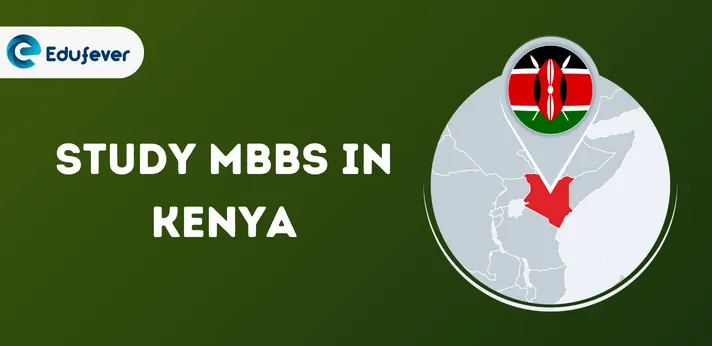MBBS in Kenya is an attractive option if you’re considering pursuing an MBBS program abroad. With its stunning landscapes, including savannahs, lakes, the Great Rift Valley, and mountains, Kenya offers a unique environment for studying medicine. The country boasts approximately 14 medical specialists per 100,000 people and produces around 600 specialists annually. However, only a third of these graduates remain in the country’s healthcare system. Therefore, Kenya stands out as an excellent destination for MBBS studies.
In Kenya, the MBBS program is dedicated to nurturing graduates with a firm grasp of medical knowledge, practical communication skills, and empathy. Regarding ethical medical practices, these graduates are trained to adapt to diverse resource settings and provide compassionate care.
[Page Index]
Country Summary
Kenya is a country in East Africa with a shoreline on the Indian Ocean. It includes the savannah, Lakelands, the sensational Great Rift Valley and high mountain countries. It’s likewise home to natural life like lions, elephants and rhinos. With a long history of musical and artistic expression, Kenya enjoys a rich oral and written literature tradition, including many fables that speak to the virtues of determination and perseverance. It has a population of about 52,428,000 and covers approximately 580,367 km².
| Population | 52,428,000 |
| Area | 580,367 km² |
| Capital City | Nairobi |
| Language | English & Swahili |
| Climate | Warm |
| Literacy Rate | 82.62% |
| Time Zone | UTC+3 (East Africa Time) |
| Currency | Kenyan shilling |
| Religion | 86% Christian, 12% Muslims, 2% Other Religion |
Quick facts
Before reading the complete information about MBBS in Kenya, let’s look at Quick Facts.
| Course Offered | Doctor of Medicine Degree (equivalent to MBBS, India) |
| Course Duration | 5 – 6 Years (Depends on University) |
| Basic Eligibility | 10+2 (Science) with 50% – 70% in PCB (Depending on University) |
| Medium of Teaching | English |
| Universities Recognition | NMC, WHO, FAIMER, UNESCO, Ministry of Education India |
| Entrance Exam | NEET (Qualified only) |
Recognition of Kenya Medical Colleges
The most critical factors determining a good and best medical college are checking affiliation, recognition, and other affiliating parameters. MBBS in Kenya Colleges are affiliated with these authorities.
- Ministry of Education, Kenya.
- NMC (National Medical Commission)
- WHO (World Health Organization)
- ECFMG (Educational Commission for Foreign Medical Graduates)
- WFME (World Federation for Medical Education)
- FAIMER (The Foundation for Advancement of International Medical Education and Research).
Graphical Representation of Recognition of Kenya Medical Colleges

Why Study MBBS in Kenya?
MBBS in Kenya targets preparing graduates to comprehend and convey powerful, sympathetic, and moral medical considerations in differing asset environments. Several other factors are:
- We are committed to looking into the use of proof-based medicine and deep-rooted learning.
- I am committed to network administration and initiative in health care.
- We are committed to cultivating a domain that advances correspondence, joint effort, social assorted variety and internationalization.
- Apply the information on the central ideas and standards of the biomedical and psycho-social sciences in healthcare arrangements.
- Communicate adequately with partners, patients and their families, the network, and others in the expert setting.
- Work successfully as a pioneer and an individual from the health conveyance group.
- Apply logical ways to deal with medical research and spread discoveries.
- Exhibit propensities and abilities for self-coordinated and long-lasting learning, self-reflection, and expert advancement.
Admission Procedure 2025-26
If you want to take the admission in Kenya in 2025, you must qualify for the National Eligibility Entrance Exam (NEET) for Indian students.
Eligibility Criteria
Kenya has become a preferred destination for Indian and international students to pursue their Medical Degree Courses. If you, too, want to study MBBS in Kenya, check the eligibility below.
| Age | Your age should be at least 17 on or before 31st December of the admission year. *No Upper Age Limit. |
| Qualification | Class 12th in Science, with PCB and English subjects from a board recognized by the authorities in India. |
| Minimum Qualifying (%) | 50% in 10+2 (UR) 45% (SC/OBC/ST) |
| Qualifying Entrance | NEET (Qualified Only) |
Graphical Representation of Eligibility Criteria

Documents Required
Please remember to carry all these related documents before admission to top colleges for MBBS in Kenya.
- Passport (Minimum 18 months validity).
- 10th Certificate & Mark sheet.
- 12th Certificate & Mark sheet.
- Birth Certificate.
- Ten passport-size Photographs
- Official Invitation letter from Kenya.
- Authorization of all documents from the Ministry of External Affairs, New Delhi.
- Legalization of all documents from the Kenya Embassy.
- Visa fees.
- Bank receipt of 1st Year Tuition fees (required for some Universities).
- HIV test documents.
Top MBBS Colleges in Kenya with Fee Structure 2025-26
Below-mentioned is the updated list of 2025-26 NMC approved Medical colleges in Kenya. For detailed info about fee structure, courses offered, admission procedure, and ranking, click the college link or read more to complete the college review. It will provide a list of the best medical colleges.
| S.No. | Name of Colleges | Fees in INR |
| 1. | University of Nairobi Kenya | Rs. 4,33,681/- |
Advantages and Disadvantages of Studying MBBS in Kenya
Do you know that the Ministry of Education oversees education in Kenya? There are a lot of advantages to studying in Kenya; here are just a few:
Advantages of Studying MBBS in Kenya for Indian Students
- The MBBS degree is recognized by the WHO and UNESCO and accepted worldwide.
- The Indian students seeking admission are admitted to the institutions this NMC recognizes for screening tests conducted by NMC.
- Wide range of possibilities and broad exposure to clinical practice due to highly equipped multi-profile hospitals.
- Students studying in Kenya can complete their internship program at world-class medical colleges and hospitals worldwide.
- The tuition fee is relatively low and affordable.
- Hostel accommodations are comfortable and up to the mark for a student’s comfort.
- MBBS colleges in Kenya provide excellent academics and sports.
- The MBBS degree students get from Kenya medical colleges is globally renowned and holds excellent worth.
Disadvantages of Studying MBBS in Kenya for Indian Students
- As English & Swahili is the local language in Kenya, students might feel the language is a barrier (outside the university campus).
- One might have to put extra effort into learning English & Swahili Language after the class hour.
- The country’s climate is slightly different, so it might be hard for students to adapt.
- Those who wish to study and work together to cover their expenses may face difficulties because it requires self-study and concentration.


